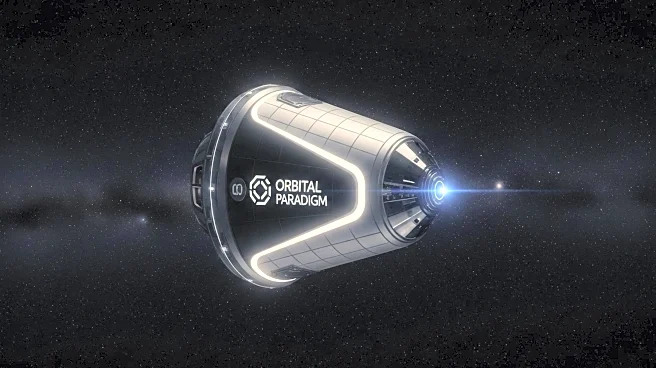What's Happening?
Orbital Paradigm, a Spanish startup, is preparing to enter the reentry vehicle market with its first test flight scheduled for later this year. The mission, named Kestrel Initial Demonstrator (KID), involves a small-scale prototype of the company's planned Kestrel reentry vehicle. The capsule, which is 40 centimeters in diameter and 30 centimeters tall, weighs 25 kilograms and will carry payloads from various partners. The KID capsule will remain attached to the upper stage for a few hours before deploying and reentering over the South Pacific. The mission aims to test guidance systems and ceramic thermal protection material. The company plans to gather data through Iridium transceivers during the flight, without attempting to recover the capsule.
Why It's Important?
This development marks Orbital Paradigm's entry into the competitive reentry vehicle market, which is crucial for returning cargo from orbit. The company's approach to reuse its Kestrel capsule and incorporate onboard propulsion systems could offer economic efficiency and increased maneuverability. This capability is significant for payloads requiring low g-forces during reentry, such as protein crystals and live tissues. Orbital Paradigm's strategy to serve a wide range of customers, unlike competitors focusing on specific sectors, could broaden its market reach and establish it as a versatile transportation provider in space.
What's Next?
Orbital Paradigm plans to launch its next mission, Learn To Fly, next year with a larger capsule incorporating a propulsion system developed by Pangaea Aerospace. This mission will reenter and splash down near the Azores, with discussions ongoing with the Portuguese Space Agency regarding reentry plans. The full-scale Kestrel capsule, expected to weigh 350 kilograms, could be ready by 2027, aiming for monthly missions by the early 2030s. The company is seeking additional funding to support future missions and expand its capabilities.









